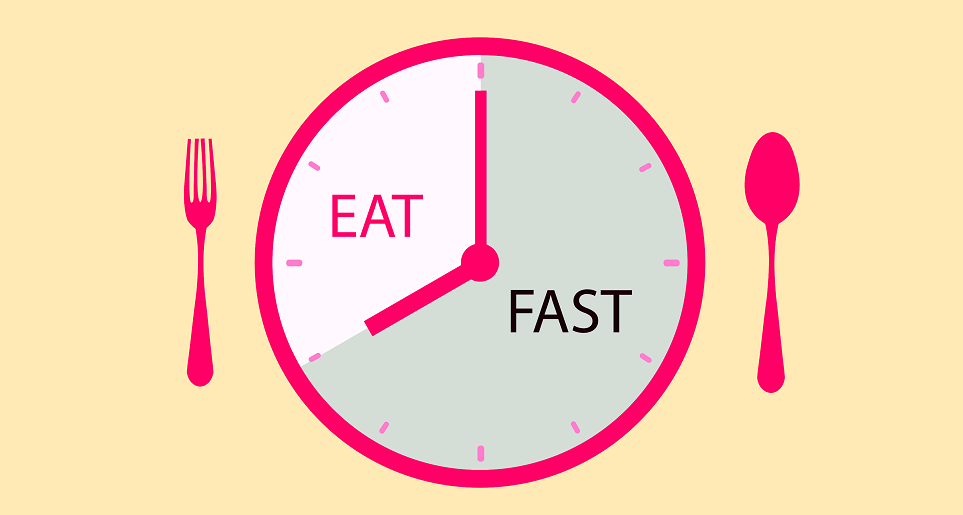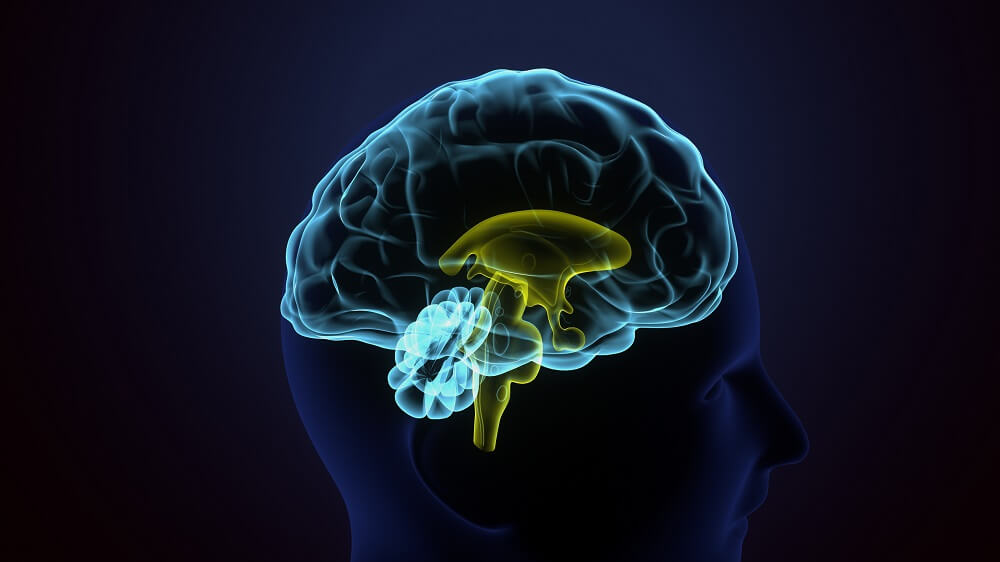
The Effect of Intermittent Fasting on Brain Health


Last update: June 13, 2025
There’s a lot of debate in the health and wellness sphere about the best diet for your health. With so many conflicting opinions, it’s difficult to know who to trust. Fortunately, there is a way to eat that may help you lose weight, improve your brain health, and even increase your longevity, all without strict dietary restrictions. Best of all, it’s not a “diet” at all.
This “non-diet” is intermittent fasting (IF), which is quickly building up steam, not only in the dietary community but also in the scientific community. Furthermore, the connection between intermittent fasting and brain health becomes more encouraging with each new study.
In fact, recent research shows that regular intermittent fasting “can lead to structural and functional changes in the brain,” an incredibly promising outcome for a simple change in the way we eat.
As a center dedicated to improving brain health and performance, Aviv Clinics understands the importance of proper nutrition and its direct effect on cognitive and physical functioning. Dietary changes such as intermittent fasting remain viable tactics for living longer, healthier lives. Here’s more on intermittent fasting, including how long to fast for brain health benefits and how you can start your intermittent fasting journey.
In This Article:
- What Is Intermittent Fasting?
- How Does Intermittent Fasting Work?
- Is Intermittent Fasting Healthy?
- Intermittent Fasting and Brain Health: How Do the Benefits Manifest?
- IF for Beginners: How Long Should You Fast for Brain Health?
- What Constitutes Breaking a Fast?
- Ready to Explore Intermittent Fasting?
- Is There Anyone Who Shouldn’t Fast?
- Unlock the Benefits of Intermittent Fasting for Brain Health
What Is Intermittent Fasting?

Intermittent fasting is an eating style that involves alternating between periods of eating and fasting. Intermittent fasting is not a diet; it’s a lifestyle. You’re in charge of your own meal plan, and you can customize it to your liking.
Because intermittent fasting doesn’t dictate what you eat (only when you eat), it can be combined with nearly any dietary program, including:
- Mediterranean
- Plant-based
- Paleo
- Keto
- DASH
- MIND
If you don’t want to follow a particular diet plan, ensure that you are still making healthy food choices. Try to avoid artificial ingredients or overly processed foods. So long as you meet all your nutritional requirements within your eating window, just about anything goes.
The Flexibility of Intermittent Fasting
Because the restrictions of a traditional diet do not tie you down with this method, intermittent fasting offers you the freedom to customize your meals to your own preferences. This means you’re more likely to stick to a consistent diet plan, which is essential if you want to lose weight and keep it off.
Our bodies are designed to fast, and you already do a form of it every day. From the time you eat your last meal at night to the time you eat breakfast in the morning, you’re fasting. Intermittent fasting is about gradually increasing this time window until your brain and body start reaping the benefits.
Aside from the health benefits, one of the best aspects of intermittent fasting is that it doesn’t require people to:
- Invest any extra time or money
- Buy special foods
- Spend hours measuring and weighing meals
Also, because IF focuses on when you eat rather than what you eat, there are also no foods that are “off-limits.” You can still enjoy your favorite meals and snacks in moderation.
All intermittent fasting requires is knowing what time it is.
IF as an Age-Old Practice
Unlike fad diets, fasting is more than just a passing trend because it’s as old as humanity itself. In prehistoric times, fasting was just a part of daily life. As hunters and gatherers, our ancestors sometimes went days without nourishment.
Documentation of intermittent fasting dates back to the 1500s, recorded by Luigi Cornaro, an Italian nobleman. Cornaro made significant changes to his diet and lifestyle habits in his 40s to strengthen his “weak constitution.”
At age 83, his colleagues urged him to chronicle these changes because they had known him as a younger man and were certain Cornaro should not still be living. He continued to beat the perceived odds and lived another 20 years, dying at over 100 years of age.
How Does Intermittent Fasting Work?

Science shows intermittent fasting can help with weight loss and insulin levels and can even “cause improvement in the case of neurological diseases.” But how does it accomplish this?
Intermittent Fasting for Weight Loss
The human body operates with one goal in mind: survival. If you go 8 to 12 hours without food (specifically, no more stored glycogen, which provides energy), your body taps into what’s easiest to access in order to feed itself: visceral fat.
Weight loss is a likely outcome. A recent scientific review of 27 studies on intermittent fasting found that “in all 27 trials (… 944 participants), IF resulted in weight loss.”
It’s important to note that not all fat stored in the body is “bad.” Certain types of fat are necessary to promote healthy metabolism and optimal hormone levels.
Visceral fat is not that type. High visceral fat levels may contribute to diabetes, heart disease, stroke, artery disease, and even cancer. So, reducing those levels is not just about eliminating a spare tire or muffin top. It’s also about protecting your health.
While intermittent fasting has become a popular option for those seeking to lose weight, research reveals its impact beyond weight loss, extending to brain health and other facets of well-being.
The Mechanism of Metabolic Switching
Although conventional advice would have us believe that we need to eat every 2–3 hours to sustain ourselves, our evolutionary history paints a different picture. Our hunting and gathering ancestors didn’t have regular access to food, so their bodies had to develop a way to operate without a consistent source of glucose. That’s where fasting comes in as a survival mechanism.
In the same way that you might clean your home and throw out the things you don’t need; fasting is your body’s way of cleaning house. Fasting for extended periods allows your body to cleanse itself by using leftover nutrients from the previous day’s meals, which triggers a process called “metabolic switching.”
Metabolic switching refers to the way the body switches energy sources during fasting. It’s been shown to:
- Enhance performance and “slow aging and disease processes”
- Promote weight loss in obese individuals
Eating constantly doesn’t allow the body time to properly rest, which means you won’t experience the cleansing benefits of metabolic switching.
Is Intermittent Fasting Healthy?
The short answer for most of us is yes. When practiced properly, intermittent fasting may be one of the healthiest lifestyle choices. Don’t let the word “fasting” deter you—intermittent fasting does not (and should not) involve starving yourself. Instead, it involves strategically tapping into a powerful biological process that offers significant health benefits, including “body weight reduction and chronic illness control.”
Additional benefits include improvements to:
- Thinking and memory
- Blood pressure
- Physical performance
- Type 2 diabetes
- Sleep apnea
Many of intermittent fasting’s health benefits come from ketones, a byproduct of the breakdown of stored fats that occurs during metabolic switching. Ketones are central to the connection between intermittent fasting and brain health.
Practices that encourage the production of ketones are widely used to “rescue the brain from cognitive deterioration related to aging” because ketones are an efficient, powerful fuel source for the brain. They also have anti-inflammatory properties and may “directly relieve conditions of oxidative stress and inflammation.”
Intermittent fasting as a form of continuous energy restriction (consistently triggering a metabolic switch) also may help prevent breast cancer in both women and men, and studies suggest that it may improve longevity — it may already have even “contributed to an extension of average and maximum life span in one human population.”

Are There Any Risks Associated with Intermittent Fasting?
As with any lifestyle change, it takes persistence and time to adapt. Here are a few potential effects to note:
- Reduced insulin levels: Individuals living with diabetes should consult with their endocrinologist or diabetes educator before commencing with intermittent fasting. However, if someone is only in the stage of insulin resistance, intermittent fasting can prevent diabetes from developing.
- Digestive problems: Some people report experiencing digestive issues, such as constipation. In this case, they’re likely not drinking adequate amounts of water or eating enough high-fiber foods.
- Acute effects: Of course, in the initial stages, one might experience some fatigue, hunger pangs, and possibly headaches.
If you’re curious about intermittent fasting’s effects, it’s critical to talk with your healthcare provider.
Intermittent Fasting and Brain Health: How Do the Benefits Manifest?

Intermittent fasting is highly effective for maintaining brain health. In addition to slowing the aging process, metabolic switching increases neuroplasticity in the brain, bolstering “resistance to stress, injury, and disease.” This helps optimize brain function. In truth, it can rewire your brain’s potential.
Imagine your brain as a high-performance machine. Over time, stress, lifestyle habits, and aging can all start to slow down its operations. Neurons misfire, synapses disconnect, and fog can descend, causing a lack of focus, forgetfulness, and mental fatigue.
Fasting essentially hits the master reset button.
It allows your body’s self-repair modes to kick into gear and clear out cellular debris. By impacting the brain at the cellular level, fasting supports optimal cognitive function from its foundational building blocks.
This fresh start is a process called autophagy, a cellular housekeeping process with an important role “in eliminating ‘toxic assets’ and promoting cell viability.”
Autophagy and Your Brain
During autophagy, cells break down accumulated waste, recycling usable parts into functional cell components and removing the rest. This clears the way for improved cellular health and functionality.
Autophagy cements the link between intermittent fasting and brain health in several ways:
- Removing cellular debris
- Reducing protein buildup in the brain
- Protecting neurons from cellular damage
- Promoting new neural connections
- Regulating inflammation
Removing degraded, dysfunctional cell components and replenishing supportive proteins can refresh the cells responsible for brain function. It also serves as a “protective factor against neurodegeneration,” which works to ward off Alzheimer’s disease and Parkinson’s.
IF and Inflammation
In addition to activating autophagy, intermittent fasting also helps with reducing inflammation, a key contributing factor to many chronic diseases. Research shows that the ketones produced during IF are important because they “promote resistance to oxidative and inflammatory stress.” Ketones hit the brakes on runaway inflammation.
Minimizing inflammation is vital, especially since “chronic inflammation is often ‘invisible.’” Too much inflammation in the body can lead to conditions such as:
- Alzheimer’s disease
- Arthritis
- Asthma
- Multiple sclerosis
- Stroke
Inflammation can disturb neural function and connectivity. Keeping it in check helps preserve your brain health and cognitive abilities.
Enhanced Brain Performance
The brain functions best when it has proper support. Fortunately, fasting triggers the production of brain-derived neurotrophic factor (BDNF), a protein essential for brain health.
Higher levels of BDNF are associated with a sharp and healthy brain. These proteins are major players in the growth and survival of neurons and are essential for functions like learning and memory. Fasting puts just enough stress on the brain to trigger resilience-building mechanisms and is consistently reported to “upregulate BDNF and improve cognitive performance.”
Basically, IF sets into motion a mild yet beneficial panic mode that reinforces support for your brain.
Through these mechanisms, fasting can clear brain fog and sharpen the mind. Many people who fast report clearer thinking and improved moods, which can benefit your brain-gut connection and increase your overall happiness.
IF for Beginners: How Long Should You Fast for Brain Health?

There are a few different ways to practice intermittent fasting. The goal is getting to the sweet spot, the 13-hour marker of fasting, where the medical benefits take hold. This is about how long you should fast for brain health benefits.
However, there’s no detriment to switching up your schedule. Some days, you may hit 13 hours; other days, you might aim for 16 or 18. Consistently practicing intermittent fasting is most important.
Wherever you start, heed these tips:
- Drink plenty of water to remain hydrated and reduce hunger pangs.
- Focus on nutrient-dense foods to ensure you get the necessary vitamins and minerals.
- Pay attention to your body’s signals and calibrate your schedule accordingly.
Intermittent fasting can be incredibly empowering. Some of the most common methods include the following.
Time-Restricted Fasting
This is the most common method of fasting and the one most people will end up practicing. It works by limiting the daily window during which you eat your food every day. For example, if you eat your first meal of the day at 10 a.m. and your last meal at 6 p.m., then you’ve fasted for 16 hours and eaten for 8.
Common ratios for time-restricted fasting include 14:10, 16:8, 18:6, and 20:4.
14:10 Method
The 14:10 method has a shorter fasting period and a longer eating window than other methods. It’s a good place to start for those interested in intermittent fasting.
To implement this method, you will:
- Fast for 14 hours every day
- Consume balanced meals in a 10-hour window
Tips for success include choosing a fasting window that aligns with your lifestyle and focusing on nutrient-dense foods during your eating window.
Once you’ve mastered 14/10 fasting, you can work up to 2 additional hours of fasting daily with the 16:8 method.
16:8 Method
Although fasting for 16 hours may sound intimidating, this regimen becomes easier as your body adapts to it.
To implement this method, you will:
- Fast for 16 hours every day
- Consume balanced meals in an 8-hour window
Tips for success with this method include eating an early dinner, forgoing an early breakfast, and skipping late-night snacks.
18:6 Method
The 18:6 method involves a longer fasting period and a shorter eating window, providing a greater challenge and potentially greater benefits.
To implement this method, you will:
- Fast for 18 hours every day
- Consume balanced meals in a 6-hour window
Tips for success include gradually increasing your fasting period by an hour or two until you hit 18 hours and focusing on high-protein, high-fiber foods to sustain your fasting periods.
20:4 Method
Also known as the Warrior Diet, it involves fasting for the majority of the day and requires discipline.
To implement this method, you will:
- Fast for 20 hours every day
- Consume balanced meals in a 4-hour window
Tips for success with this method include eating nutrient-dense meals to meet your nutritional needs, listening to your body and adjusting as needed, and staying busy to distract yourself during fasting periods.
One Meal a Day (OMAD) Intermittent Fasting
A strict form of time-restricted fasting, this method involves eating all your daily calories in just one meal per day. That means you:
- Fast for 23 hours every day
- Consume all calories in a 1-hour window
OMAD fasting combines the benefits of overnight fasting with major calorie restriction. While the diet is challenging, OMAD devotees report significant mental clarity and increased energy once they get past the initial adjustment period.
5:2 Fasting
The 5:2 approach is one of the more popular and user-friendly types of IF. This method of fasting involves:
- Eating normally for 5 days a week
- Fasting for 2 days a week
On fasting days, you won’t truly fast but instead significantly restrict your caloric intake. This means eating one 500-calorie meal if you’re a woman or one 600-calorie meal if you’re a man. The two fasting days are not consecutive, so for those needing some flexibility, this method can be a great introduction to IF without feeling deprived.
Eat Stop Eat
A version of 5:2 fasting, Eat Stop Eat is great for those who prefer to fast just one or a couple of days a week rather than every day. It follows a specific fasting protocol:
- Abstain from all food for a full 24-hour period, only drinking water, black coffee, or noncaloric beverages
- Resume eating normally the rest of the week
This method is fairly sustainable for people who want to try IF. The extended daily fasts mean you only have to flex your resilience chops one to two days a week rather than daily.
Alternate Day Fasting (ADF)
As the name suggests, this method involves cycling between fasting and eating days. Instead of fasting for only two days a week, like in the 5:2 method, you’ll fast on alternating days. Some versions suggest consuming zero calories on fasting days, while others recommend following the same 500–600-calorie meal plan on fast days.
ADF is regarded as one of the more difficult yet effective forms of intermittent fasting. The fasting periods can demand a lot of willpower, but the benefits can be significant.
What Constitutes Breaking a Fast?

If you’re interested in giving fasting a try, you might be wondering what counts as breaking a fast. The guidelines can seem confusing, but it’s essential to understand this if you’re interested in intermittent fasting for brain health.
Will your morning cup of coffee ruin your fasting schedule or not? The answer is, it depends.
While calorie-free beverages like coffee or tea are all right to drink while fasting, consuming any calories can break a fasted state. That includes things you may not expect, like any kind of artificial sweeteners or creamers you may add to your favorite drink.
However, don’t let this restriction ruin a daily coffee ritual — you don’t have to drink black coffee exclusively. You can make a game out of adding creamer to your coffee at a later time every day. See how long you can go, or try challenging your family members or friends to see who can hold out with black coffee the longest.
If you’re struggling to kick the creamer, some fasting-approved alternatives technically maintain a fasted state even though they contain a small number of calories:
- Non-nutritive sweeteners, like stevia or monk fruit
- Unsweetened nondairy milks
- MCT or coconut oil (in moderation)
- Butter or ghee (in moderation)
The goal is to avoid taking your body out of ketosis or using ketones for energy, which could negate the effects of fasting. For most fasters, healthy fats or very few calories are okay.
Ready to Explore Intermittent Fasting?
Time-restricted fasting is a great way to start because you can ease into it by gradually shrinking your feast window. Start with this before trying the more advanced options. Just like you can’t expect to run a marathon without experience, you can’t expect to fast for hours on end without a little training first.
Try gradually shrinking your eating window every day until you’ve reached your goal:
- If you currently eat your first meal at 8:00 a.m., try pushing it out to 9:00 a.m. and eventually to 10:00 a.m. or 11:00 a.m.
- If you want to try 5:2 fasting, start out by fasting only one day a week and gradually upping it to two.
- On the weekends, you may decide not to stick to a schedule. It’s important to balance what works best for your lifestyle with a regular fasting commitment.
As you become more accustomed to fasting, you might venture into other methods to see if they work for you.
Whatever fasting schedule you choose, just try to be consistent. Establishing a routine and sticking to it helps establish consistency, which is key for a healthy lifestyle.

Is There Anyone Who Shouldn’t Fast?
With proper guidance, fasting can be an incredibly powerful health practice, but safety should always come first. Certain groups should exercise caution or avoid fasting altogether.
People with the following conditions should not fast:
- Type 1 diabetes: People with Type 1 diabetes or anyone who takes insulin shouldn’t fast. This can put you at risk for dangerous blood sugar problems like hypoglycemia or ketoacidosis.
- Eating disorders: Fasting can be triggering and promote disordered eating patterns in some people. Anyone who struggles with remembering to eat on a daily basis should avoid IF as well.
- Pregnancy: Fasting is not recommended during pregnancy because the fetus needs a steady supply of nutrients. IF could potentially deprive the fetus of essential vitamins and minerals.
Additionally, those with the following conditions should consult their doctor before starting IF:
- Type 2 diabetes: Though fasting can improve insulin resistance for type 2 diabetics, medication dosages may need adjusting.
- Hypertension or heart issues: People with hypertension, blood pressure problems, or a history of heart problems may be advised against IF, depending on their condition.
- Cognitive impairments: Those with cognitive issues that cause memory problems shouldn’t fast either, as forgetting to eat could cause malnourishment or dehydration.
- Certain medications: Some medications may also prevent people from fasting or require dosage adjustments when fasting.
- Underweight: Those who are clinically underweight should not attempt fasting until they’ve reached a healthy body weight.
As with any diet, check with your healthcare provider if you’re not sure that fasting is right for you.
Unlock the Benefits of Intermittent Fasting for Brain Health

The benefits of intermittent fasting are well-documented. It can increase your lifespan, lower your risk for diseases, and improve your brain’s overall health. But perhaps fasting’s biggest benefit is that it allows you to put the joy back into eating. When you don’t have to worry about weighing, counting, or measuring, you can focus on eating foods that nourish your body and soul.
Nutrition is a core component of the Aviv Medical Program. Aviv Clinics delivers a highly effective, personalized treatment program to enhance brain and body performance and improve the cognitive and physical symptoms of conditions such as traumatic brain injuries, fibromyalgia, Lyme, and dementia.
The Aviv Medical Program’s evidence-based therapies include nutrition management, alongside other interventions like a unique, proprietary hyperbaric oxygen therapy protocol. Based on more than two decades of research and development, the Aviv Medical Program is designed for your individual biology and customized to your goals and needs.
If you’d like to learn how the program works and its benefits, contact us for more information.
Aviv Medical Program provides you with a unique opportunity to invest in your health while you age.


